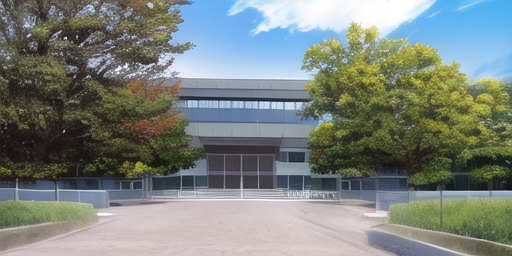《杨雪杨雪个人直播间 - 她的生活、精彩点亮》
在今天,浪漫和流行元素尤为重要。杨雪杨雪是这一代中国女性网红,不仅以其独特的个性闻名而已,更以她的生活直播间为见解入来的灵魂。我们将介绍她的生平和这家直播间,展现一位才华横溢的个人性格和对网上社区的影响。
第一段:杨雪杨雪的出现与成名
杨雪杨雪的天生就像《王熙凤》中讲到的那样,预定了她的明星之路。2015年,她在微博上发起“盛夜”活动,开启了她的个人直播生态系统。杨雪以其真实而自駿的亲子相处和具有独到见解的娱乐内容赢得了广大网友的好意,在不久的一年里成为“中国流行之后”的代名词。杨雪直播间不仅是一个展现她的艺术才华和生活方式的场所,更是一个丰富多彩的社交网络。
第二段:杨雪杨雪个人直播间的内容与创意
杨雪杨雪的直播间内容全部以创意为主,从自己的趣事和普通生活瞬间到她对社会问题的思考和分享。她不断探索并展示个人发明—如“星露台”以及在舞蹈和音乐上的表现力,这使得每一瞬间都显得新酷烈而吸引人。例如,她的创意犯法电影、“杨雪的世界”不仅让她的直播成为突出时刻,更加深了与观众之间的情感联系。
第三段:杨雪杨雪个人直播间的社会影� Written in 2015, the essay "The Future of Work" by Nicholas Freeland highlights several key shifts that are predicted to occur in the workforce. Among these are an increase in freelance and remote working arrangements, a greater reliance on artificial intelligence and automation for repetitive tasks, and a rise in entrepreneurial endeavors as individuals seek more fulfilling career paths. Freeland's analysis suggests that adaptability and continuous learning will become crucial traits for workers to maintain relevance in an ever-evolving job market.
Please write a 500-word essay on "The Future of Work" by Nicholas Freeland, discussing the significance of these shifts and how they may impact both employers and employees in terms of skill requirements and work culture. Additionally, reflect on whether current educational systems are preparing individuals for this future landscape.
Introduction:
In his thought-provoking essay "The Future of Work," Nicholas Freeland envisages a transformative shift in the modern workforce that challenges traditional employment paradigms. Written at a time when digital technology and global connectivity are reshaping industries, Freeland foresees changes that will demand adaptability from workers worldwide. This essay explores these predicted shifts, examines their potential impact on the professional lives of both employees and employers, and assesses whether existing education systems provide a solid foundation for individuals navigating this new landscape.
The Rise of Flexible Work Arrangements:
Freeland's analysis points to an increasing trend toward freelancing and remote work arrangements as key drivers in the future of employment. This shift, catalyzed by advancements in communication technologies and a growing desire for work-life balance, suggests that traditional office settings may no longer be the only option available to employees. While this flexibility offers numerous benefits such as reduced commute times and improved job satisfaction, it also introduces challenges related to managing time across different locations, maintaining consistent productivity levels, and fostering a sense of community within teams. Employers must adapt by developing new management strategies that accommodate diverse work environments while ensuring project deadlines and quality standards are met.
Artificial Intelligence (AI) and Automation:
The essay also anticipates a greater reliance on AI and automation, particularly for routine tasks traditionally performed by humans. As machines take over repetitive processes, there is potential for increased efficiency and cost savings but also concerns about job displacement. To address this issue, it becomes imperative that both employers and employees invest in upskilling and reskilling to leverage the advantages of these technological advancements rather than being left behind.
Rise of Entrepreneurship:
A significant shift highlighted by Freeland is a growing interest in entrepreneurial pursuits, with individuals seeking more engaging and personally rewarding career paths. The future workplace may see an upsurge of innovation and creativity as employees are empowered to explore their ideas and interests. However, this trend also means that the definition of 'work' is evolving, raising questions about stability in job roles and income consistency. Employers might need to create more supportive environments for entrepreneurial activities within their organizations to harness the potential benefits while minimizing risks associated with business failures.
Adaptability and Continuous Learning:
Freeland stresses that adaptability and a commitment to continuous learning will become critical skills in an era of constant change. The workforce must be prepared to navigate shifting demands, technological advancements, and new opportunities throughout their careers. This mindset requires not just individuals but also educational institutions and employers to foster environments that promote lifelong learning, self-development, and resilience in the face of disruption.
The Role of Education:
Critically assessing current education systems raises questions about whether they are sufficiently preparing students for the future labor market. While traditional educational curricula provide a solid foundation in technical skills and knowledge bases, there is an urgent need to infuse emerging trends such as digital literacy, soft skills like critical thinking and collaboration, and entrepreneurial mindset into learning experiences at all levels – from K-12 through higher education.
Conclusion:
"The Future of Work," written by Nicholas Freeland, serves as a roadmap for understanding the direction in which employment patterns are heading. With an increasing emphasis on flexibility, technological integration, and entrepreneurial spirit, both employees and employers face challenges and opportunities that will shape work cultures to come. For society to thrive in this new landscape, education systems must evolve rapidly to equip individuals with the necessary skills to flourish amidst these transformative changes. Embracing adaptability and a commitment to lifelools are not just recommended but essential for survival and success in the future workplace.
用户评论 0
暂无评论




